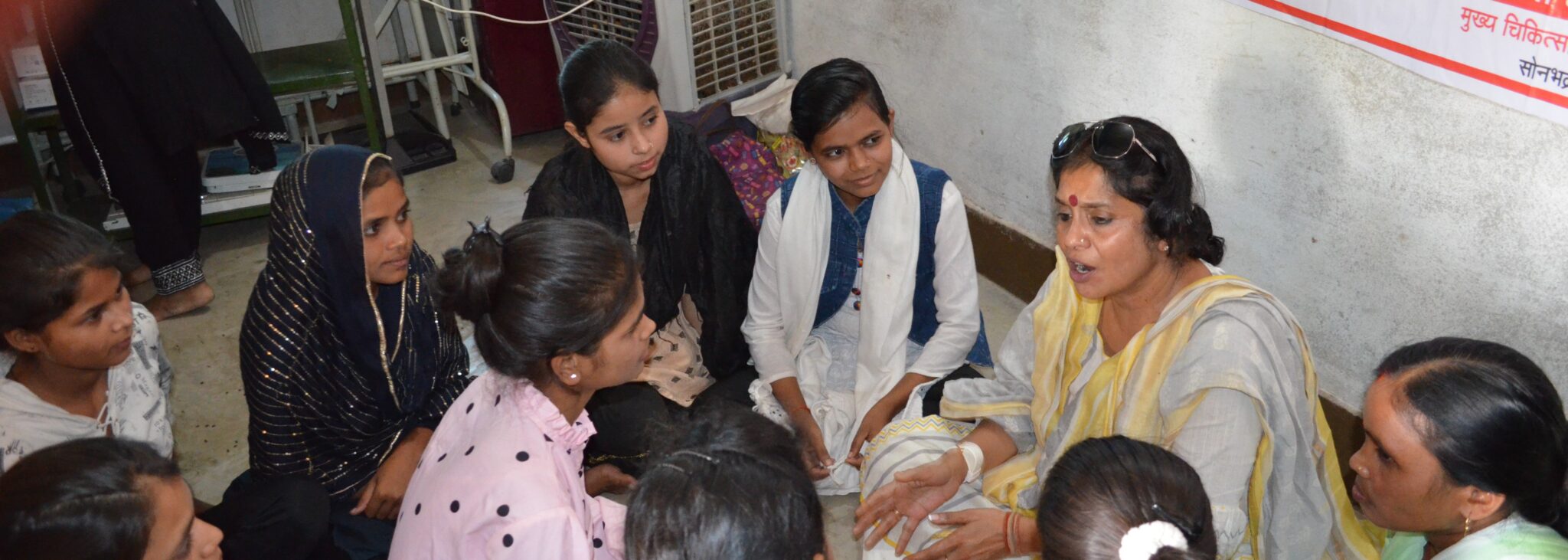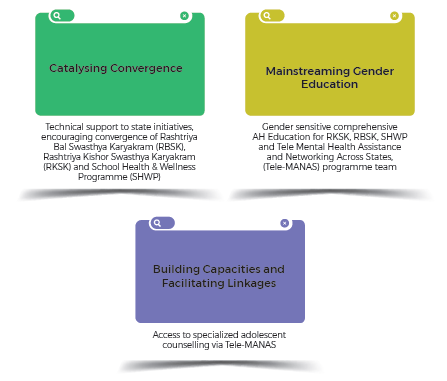
Project Utthan
Adolescent Health and Wellbeing – Improving Convergence of Programs in Uttar Pradesh
Project Utthan, is being implemented by the IPE Global Centre for Knowledge and Development (CKD) in partnership with the National Health Mission, Uttar Pradesh. The project is dedicated to improving adolescent health outcomes in the districts of Barabanki, Bareilly, and Sonbhadra. A Memorandum of Understanding (MoU) has been signed between the two stakeholders, underscoring their commitment and collaboration for the seamless execution of its initiatives and the realization of its goals.
Project Utthan adopts a human-centered design, facilitating discussions, and strategies to dismantle the barriers hindering adolescent growth and well-being. This collaborative approach ensures solutions are holistic and community-driven, deeply rooted in governmental initiatives.
Project Utthan Flyer
Convergence at its heart:
Project Utthan’s essence lies in its unique approach, steering a harmonious convergence among various schemes such as Rashtriya Kishor Swasthya Karyakram (RKSK), School Health and Wellness Program (SHWP), and Rashtriya Bal Swasthya Karyakram (RBSK). This initiative advances state directives and fortifies innovations like model adolescent health clinics, Kishor Swasthya Manch (KSM), and vibrant adolescent clubs. Together, these elements will strengthen health interventions, each thread reinforcing the other.
Objectives :
At its core, Project Utthan aspires to:
• Increase knowledge on gender, SRH, nutrition, mental health, and ways of maintaining overall health and well-being.
• Improve compliance with Weekly Iron & Folic Acid Supplementation (WIFS) and deworming to contribute towards anemia reduction.
• Improve access to mental health services, contributing to a reduction in the incidence of mental health illnesses and suicides among adolescents.

Our Approach


Envisioning a brighter tomorrow
Project Utthan envisions a future where adolescents are healthier, more informed, and empowered—making decisions that positively ripple throughout their lives.
A ready reckoner on Menstrual Hygiene Day: On the occasion of Menstrual Hygiene Day, a handout was developed in collaboration with NHM-UP as a ready reckoner, listing activities that can be undertaken on various platforms to raise awareness about menstrual hygiene. These activities include engaging adolescents through social media as well as organizing discussions with them at the community level to help normalize menstrual hygiene. This handout has been shared with all key government and non-government stakeholders working with adolescents across 75 districts.

